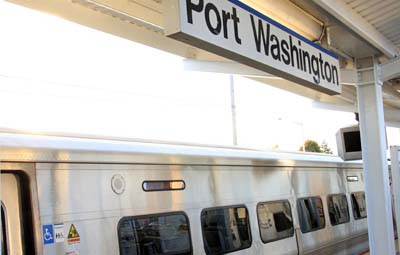
MTA Chairman and CEO Patrick Foye is ordering an investigation into agency overtime payments, following reports of continuously increasing costs for extra hours worked.
The Empire Center for Public Policy, a fiscal watchdog group, reported that overtime payments at the Metropolitan Transportation Authority grew almost 16 percent in 2018, helping drive a 6.27 percent pay hike across the agency from 2017.
Payroll costs for the 80,057 employees at the MTA increased by $418.46 million from $6.67 billion in 2017 to just shy of $7.09 billion in 2018
The New York Post also recently reported that Marco Pazmino, an LIRR employee, logged 4,157 hours of overtime in 2018, on top of 1,688 regular hours for a total of 5,845 hours – or about two-thirds of the total hours in 2018. Pazmino earned $311,162 in total, according the Empire Center for Public Policy, or $256,177 in overtime and $54,985 in base pay.
“Some overtime is to be expected at any public transit agency in order to keep up with critical repairs and maintenance, especially at a time of extraordinary work being done around the system,” Foye said in a statement last Wednesday. “But the accumulation of so many hours of overtime raises serious questions, including potential safety concerns such as exhaustion.”
In the case of the Long Island Railroad, its overtime spending rose by about $50 million from $175.4 million to $224.6 million – or nearly 30 percent. More than half of the MTA’s 100 highest paid employees and seven of the top 10 worked for the LIRR in 2018.
The highest paid employee – for both the LIRR and MTA – was Thomas Caputo, a chief measurement officer, who earned $461,646 last year. His base salary was $117,499, meaning he raked in $344,147 in overtime.
MTA spokesman Max Young said the overtime pay hikes stemmed from “record levels of investment to repair, maintain and modernize the entire system.”
Foye said he is directing the presidents of the Long Island Rail Road, Metro-North Railroad, and New York City Transit to review their overtime procedures and regulations.
The MTA chairman is also asking the presidents to review the last year of overtime claims and payments, which he said could lead to further investigations if warranted, within 60 days. Paired with this would be a 30-day MTA review of time and attendance verification systems.
The results will be presented to the MTA board and the public, Foye said.
He is also asking the inspector general to conduct a full review of “excessive overtime payouts to ensure that they were appropriately planned for, scheduled, signed off upon, and that the claimed hours were in fact worked.”
“The MTA is funded by taxpayers and is responsible for the safe transport of millions of people each day. It is critical that we earn and maintain the public trust every day,” Foye said. “Ensuring that every dollar spent on overtime is in fact being spent properly is part of that mission.”






